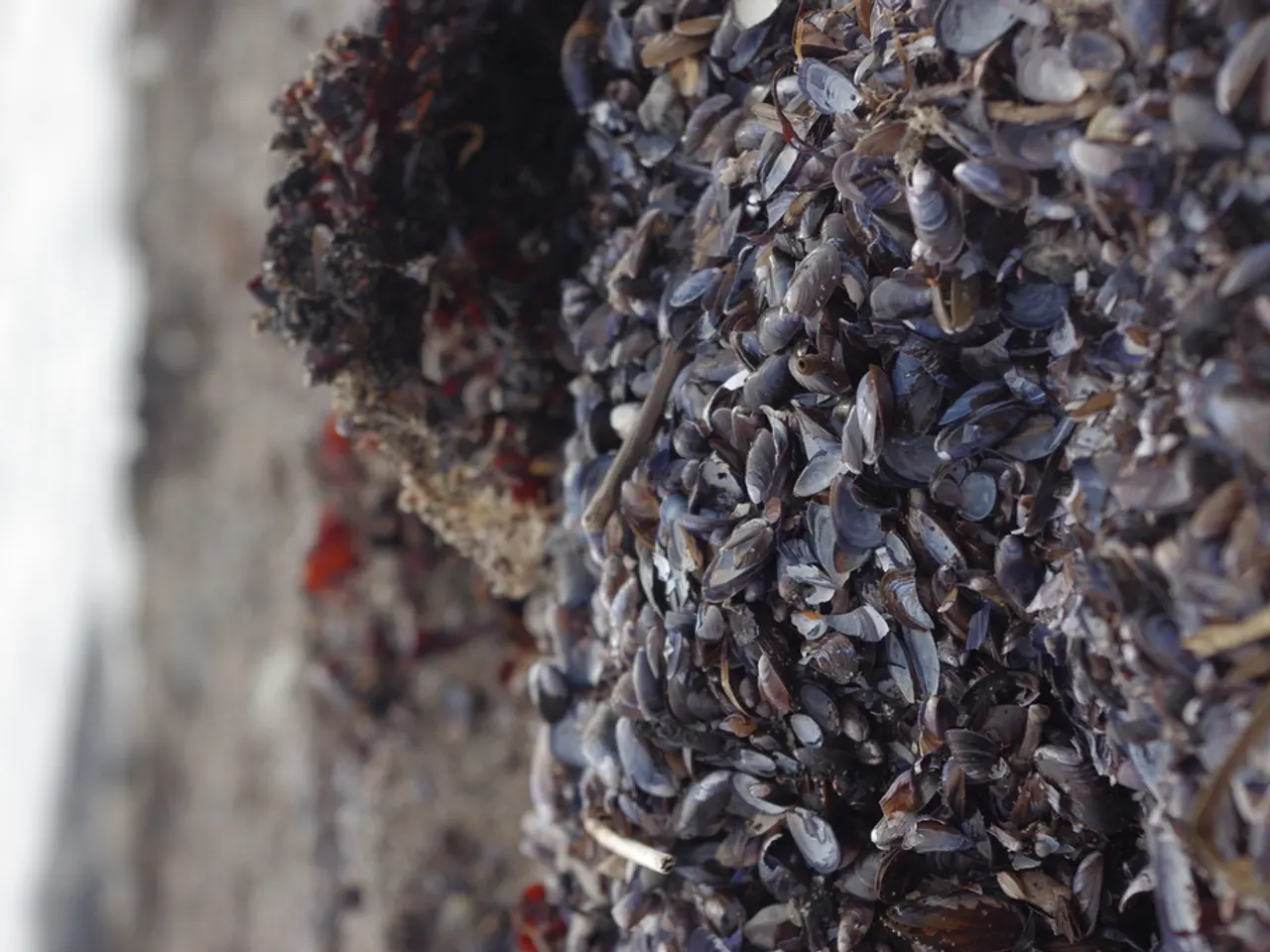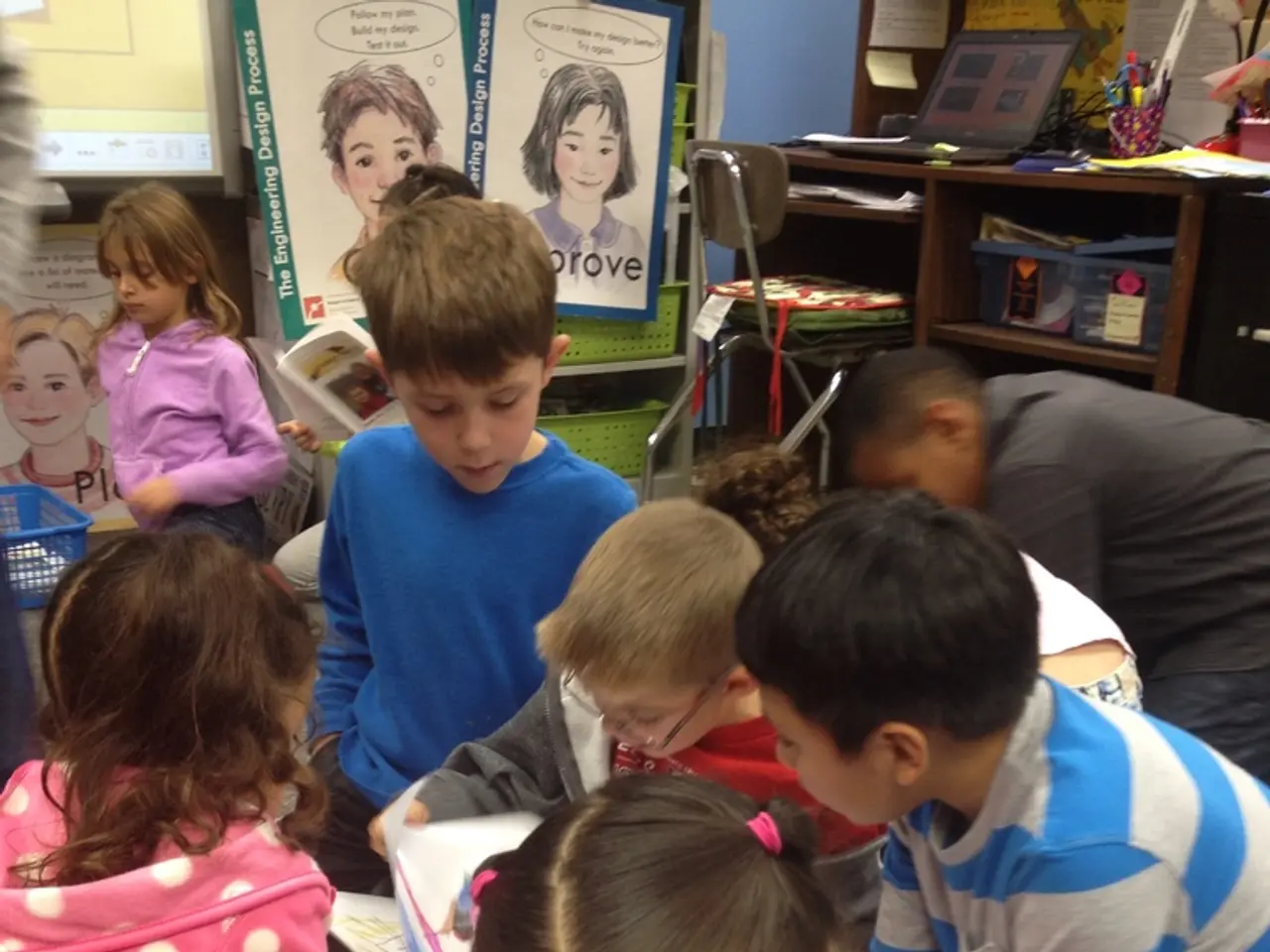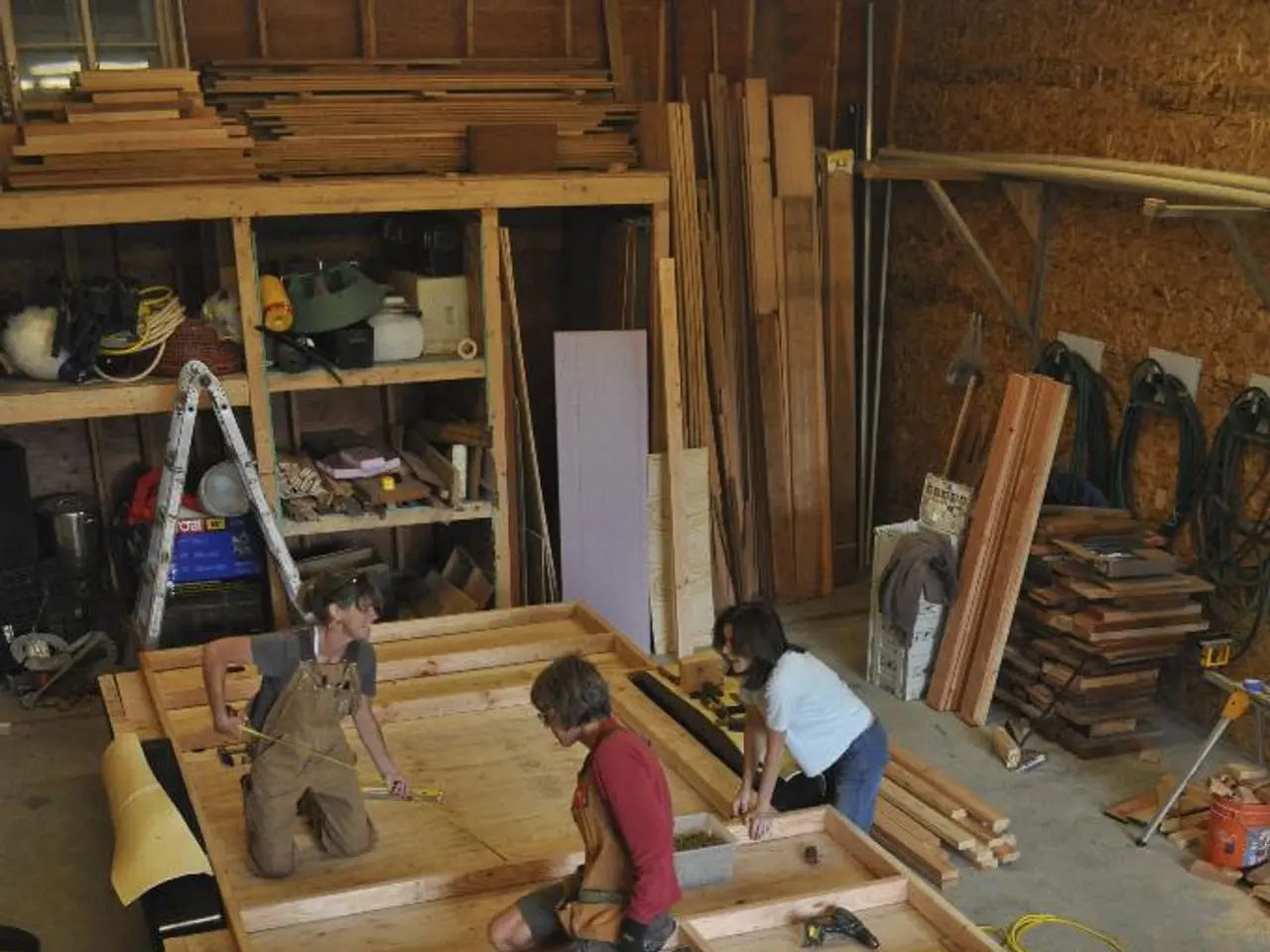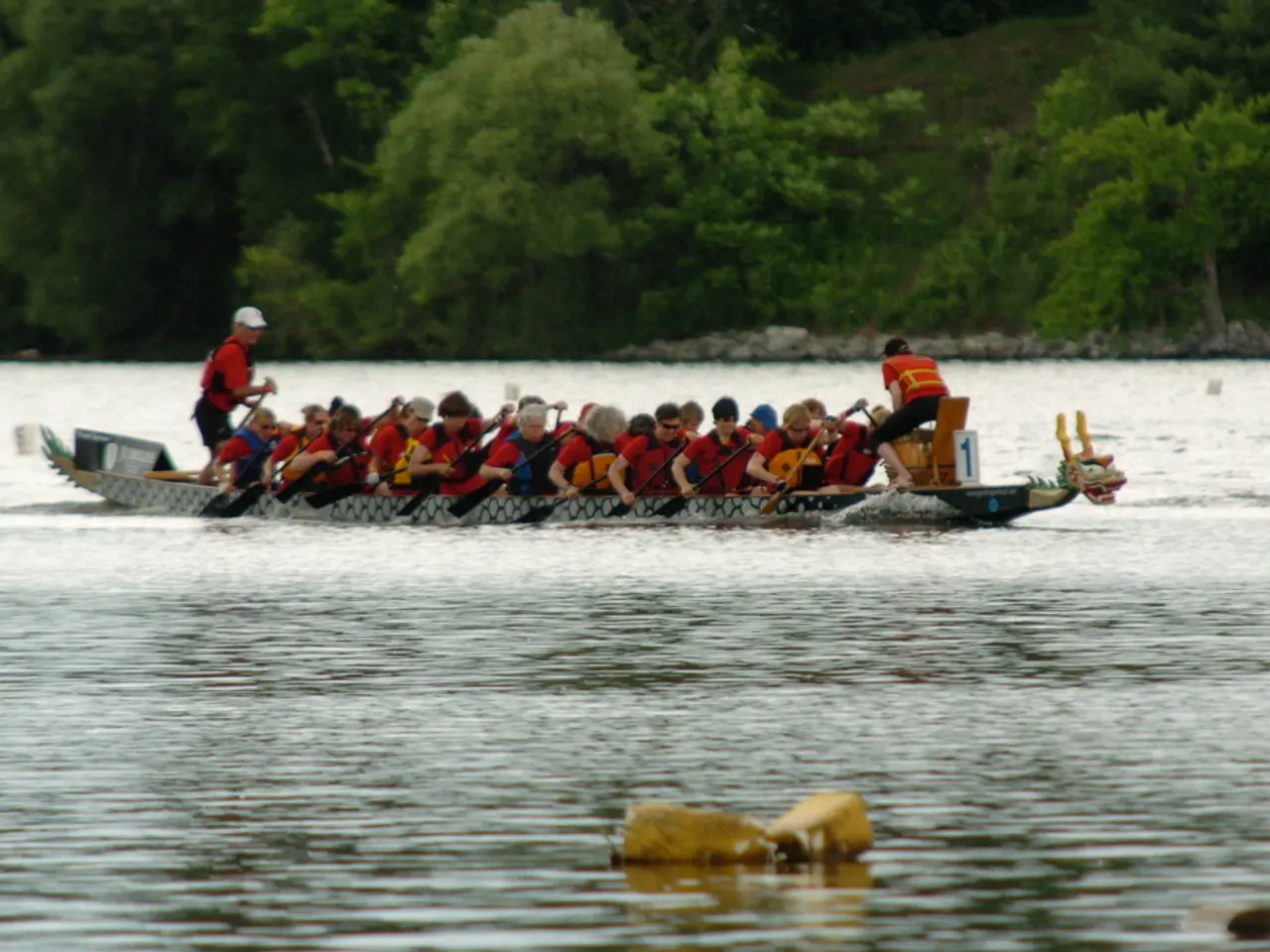Introducing the Kenneth K. Chew Center, devoted to studies and restoration of shellfish populations
In a significant move for the shellfish industry and marine conservation, the Puget Sound Restoration Fund, a Washington-based nonprofit organisation, has formed a partnership with NOAA to collaborate on research and restoration activities at the native shellfish hatchery located at the Manchester Research Station.
The Manchester Research Station, situated on Washington state's Kitsap Peninsula, is a research station dedicated to aquaculture. A modern shellfish hatchery, complete with a 600 square-foot outdoor tank farm and a 630 square-foot greenhouse nursery for growing shellfish and microalgae, has recently been completed at the station.
The new shellfish hatchery will provide restoration-grade Olympia oyster larvae and seed to the restoration community throughout Washington State. This is a crucial step towards the 10-year plan to rebuild native Olympia oyster populations in Puget Sound, which focuses on restoring oyster habitat, integrating oyster restoration with eelgrass and cordgrass habitats, utilising research to identify best practices, engaging communities, and building living shorelines.
The plan aims to rebuild oyster populations while restoring healthy, dynamic coastal ecosystems adapted to future environmental changes. The collaborative effort involves multiple partners, including the Skagit County Marine Resources Committee (MRC), various Marine Resources Committees (MRCs) around Puget Sound, research institutions, coastal conservation organisations, community volunteers, local governments, and the Native Olympia Oysters Collaborative.
For over 150 years, Washington State's tidelands have been productive farm beds for nutritious oysters, clams, and mussels. The new hatchery supports the goals of the President's National Ocean Policy, which aims to expand domestic aquaculture to stimulate the ocean economy and improve ocean health. The hatchery also aligns with the Washington Shellfish Initiative, which aims to promote and expand aquaculture, increase opportunities for recreational shellfish harvesting, protect water quality, and restore native shellfish habitat and populations.
The hatchery has a 20' x 8' floating upwelling system (FLUPSY) for oyster grow-out (singles). It has the capacity to produce up to 6 million "spat-on-shell" oysters and up to 2 million oyster "singles" annually. The facility will supply 150 gallons of filtered seawater per minute from adjacent Clam Bay.
In recognition of Professor Kenneth K. Chew's longstanding contributions to shellfish research and aquaculture, the new hatchery will be named the Kenneth K. Chew Center for Shellfish Research and Restoration. The hatchery is a testament to the collaborative efforts of various organisations and individuals working towards the common goal of restoring and preserving the native shellfish populations in Puget Sound.
References: [1] Puget Sound Restoration Fund. (n.d.). About Us. Retrieved from https://www.pugetsoundrestorationfund.org/about-us [2] Puget Sound Restoration Fund. (n.d.). Our Work. Retrieved from https://www.pugetsoundrestorationfund.org/our-work [4] Washington State University. (2021, March 26). New Shellfish Hatchery Opens at Manchester Research Station. Retrieved from https://news.wsu.edu/2021/03/26/new-shellfish-hatchery-opens-at-manchester-research-station/ [5] NOAA. (2021, June 23). NOAA Launches National Shellfish Initiative. Retrieved from https://www.noaa.gov/media-release/noaa-launches-national-shellfish-initiative
- The Puget Sound Restoration Fund, in partnership with NOAA, is collaborating on research and restoration activities at the new aquaculture-focused Manchester Research Station.
- Climate change and its potential impacts on the environment are significant concerns for the science community, with the industry and environmental-science sectors actively involved in finding solutions.
- The new shellfish hatchery at the Manchester Research Station is designed to provide restoration-grade Olympia oyster larvae and seed, contributing to the 10-year plan for rebuilding native populations in Puget Sound.
- The hatchery aligns with the goals of the President's National Ocean Policy, as well as the Washington Shellfish Initiative, which aim to expand aquaculture and improve ocean health.
- In the field of business and education-and-self-development, finance and general-news sectors constantly follow the progress and impact of the shellfish industry, including partnerships like the one between the Puget Sound Restoration Fund and NOAA.
- The new Kenneth K. Chew Center for Shellfish Research and Restoration, named in honor of a renowned shellfish researcher, is a testament to the collaborative efforts of various organisations and individuals working towards the restoration and preservation of Puget Sound's native shellfish populations.




